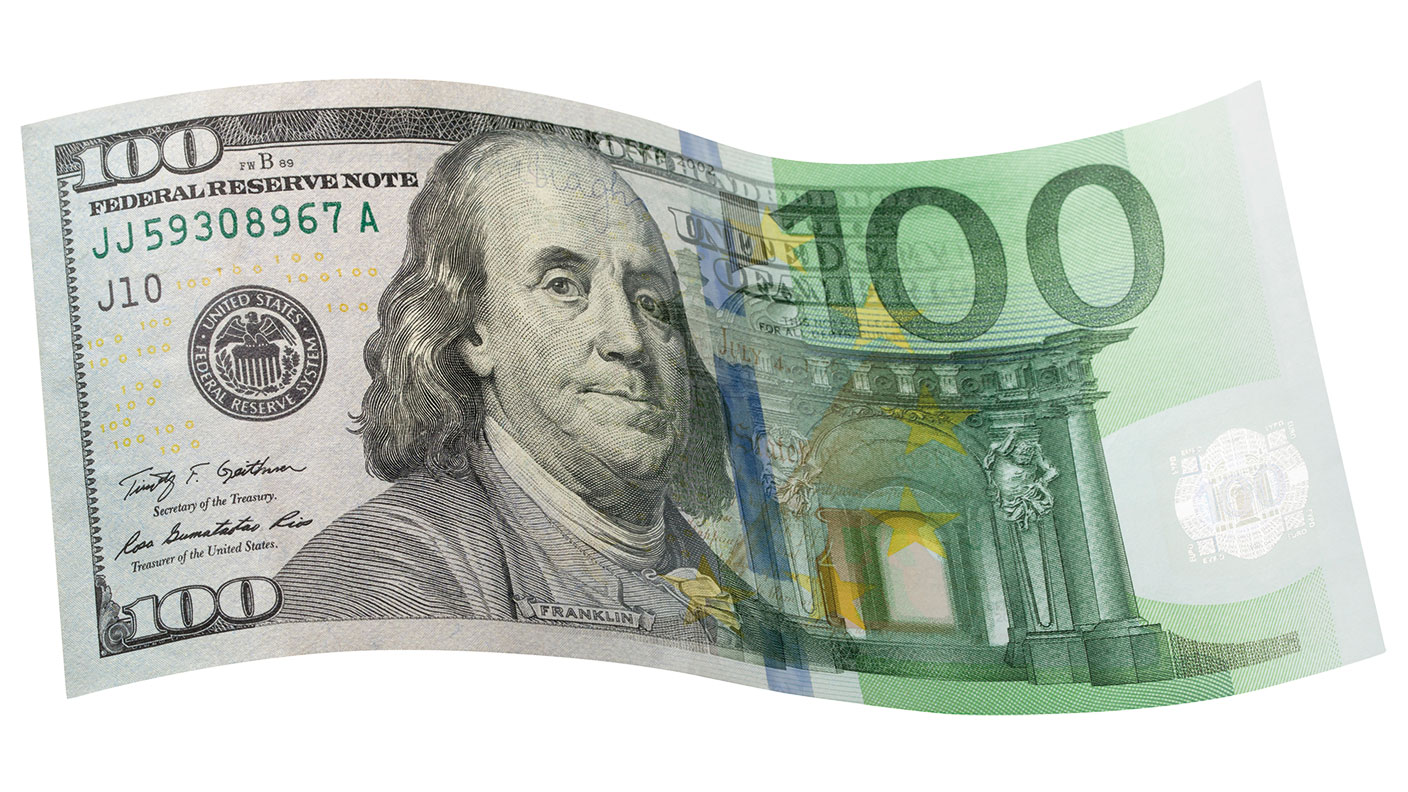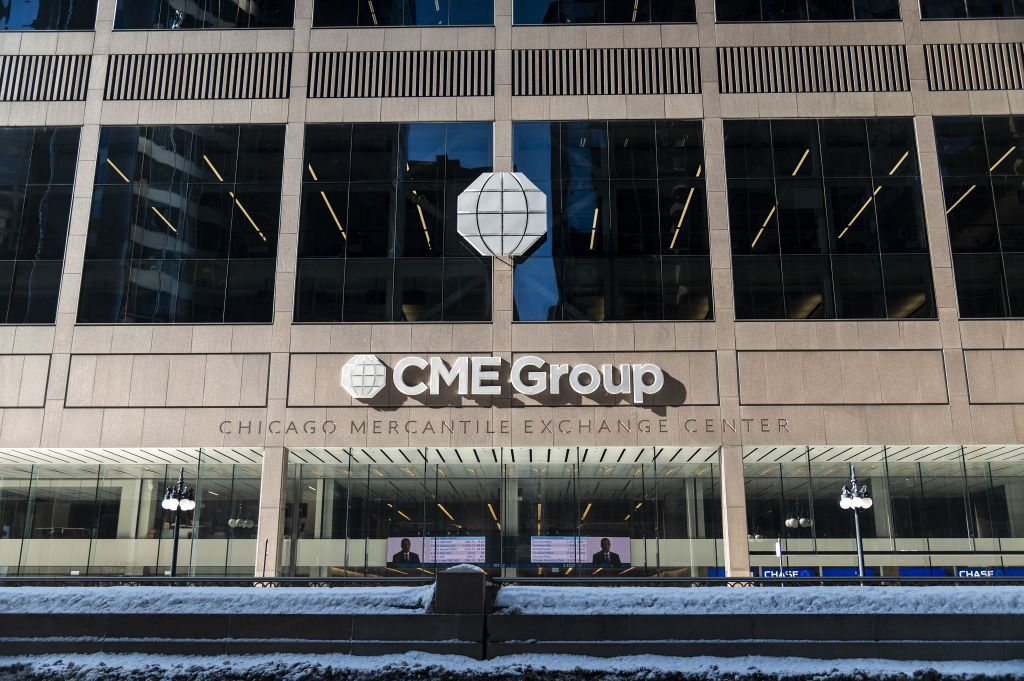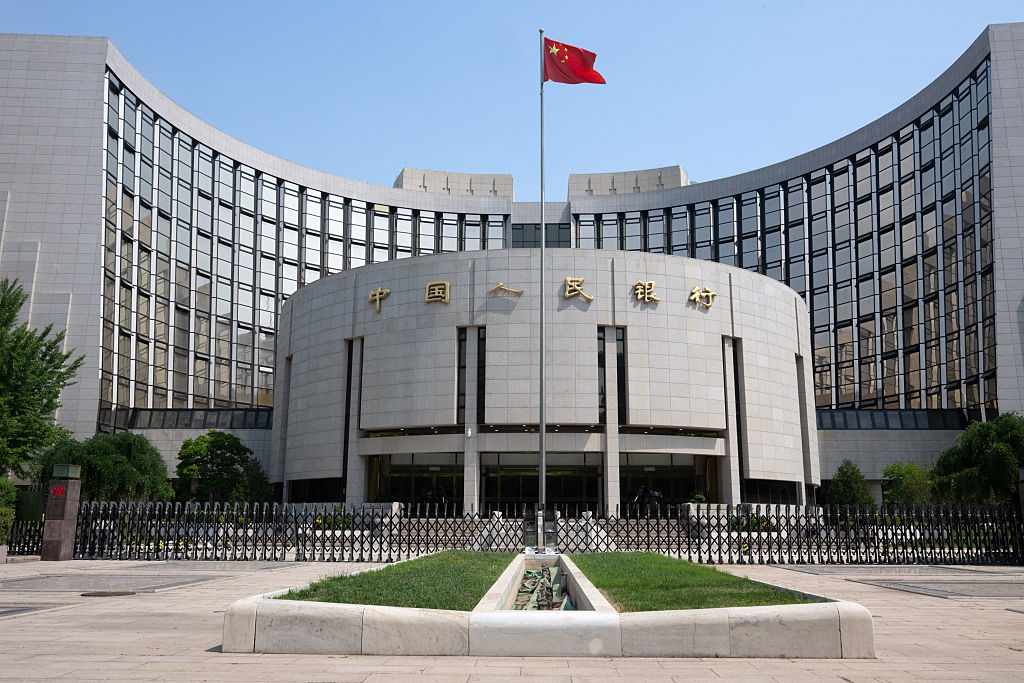The US dollar is ripe for sharp depreciation
The US dollar – usually considered a traditional “safe haven” refuge – suffered its worst monthly performance in nearly a decade last month as risk-averse investors shunned it.

Get the latest financial news, insights and expert analysis from our award-winning MoneyWeek team, to help you understand what really matters when it comes to your finances.
You are now subscribed
Your newsletter sign-up was successful
Want to add more newsletters?

Twice daily
MoneyWeek
Get the latest financial news, insights and expert analysis from our award-winning MoneyWeek team, to help you understand what really matters when it comes to your finances.

Four times a week
Look After My Bills
Sign up to our free money-saving newsletter, filled with the latest news and expert advice to help you find the best tips and deals for managing your bills. Start saving today!
Has the greenback reached a turning point? The US dollar index gained more than 10% between March 2018 and April 2020. The index measures the greenback’s value against a basket of six major trading partners’ currencies. Yet that trend has now gone into reverse, with the dollar falling by 4.4% in July, its worst monthly performance in nearly a decade. It is down by 9% from a mid-March high and has reached a two-year low.
Debasement, debt and dodgy institutions
The dollar’s reversal will have broad implications, says Amrith Ramkumar in The Wall Street Journal. The strong dollar was driven by US interest rates, which were higher than those on offer in Europe or Japan. That encouraged yield-hungry investors to park cash in dollar assets. Yet the US Federal Reserve has now slashed rates to near-zero and quantitative easing has expanded its balance sheet by almost $3trn in five months.
The dollar is still not particularly weak on a historical basis, notes Neil Shearing of Capital Economics, remaining above its ten-year average valuation in trade-weighted terms. Yet something mysterious is afoot. Risk-averse investors have been crowding into safe havens such as bonds and gold, but the dollar, another traditional refuge, has been shunned.
MoneyWeek
Subscribe to MoneyWeek today and get your first six magazine issues absolutely FREE

Sign up to Money Morning
Don't miss the latest investment and personal finances news, market analysis, plus money-saving tips with our free twice-daily newsletter
Don't miss the latest investment and personal finances news, market analysis, plus money-saving tips with our free twice-daily newsletter
What’s more, US inflation expectations have risen recently even as stocks remain stuck. The explanation may be that markets are positioning for a “regime shift” in US monetary policy, with a Federal Reserve that “tolerates – or indeed targets – higher inflation”. That makes the greenback a less attractive asset than it once was.
The dollar’s turnaround raises questions that “go to the heart of the global financial system”, say Colby Smith, Eva Szalay and Katie Martin in the Financial Times. Some 88% of deals in the $6.6trn foreign exchange market involve the greenback. Investors are now questioning whether US institutions can withstand a period of intense political polarisation. Donald Trump’s recent suggestion that the election should be delayed has hardly allayed fears of civil strife.
A boon for stocks
American political dysfunction compares unfavourably with Europe, which is taking unprecedented steps towards fiscal union, says Stephen Roach in Project Syndicate. A rising euro has been a significant factor driving the dollar’s recent fall. The macroeconomic picture is also unfavourable for the greenback, with the US running a current account deficit while the eurozone runs a surplus. All this suggests that an “overvalued US dollar is ripe for a sharp devaluation”.
Many will cheer a weaker dollar, says Reshma Kapadia in Barron’s. It could spark a boom in emerging markets by providing cheaper financing costs for local businesses. A falling currency also bodes very well for American stocks because a weaker currency flatters the overseas earnings of US companies when translated into dollar terms. David Kostin of Goldman Sachs notes that a 10% fall in the trade-weighted index boosts S&P 500 earnings per share by 3%.
Get the latest financial news, insights and expert analysis from our award-winning MoneyWeek team, to help you understand what really matters when it comes to your finances.
Alex is an investment writer who has been contributing to MoneyWeek since 2015. He has been the magazine’s markets editor since 2019.
Alex has a passion for demystifying the often arcane world of finance for a general readership. While financial media tends to focus compulsively on the latest trend, the best opportunities can lie forgotten elsewhere.
He is especially interested in European equities – where his fluent French helps him to cover the continent’s largest bourse – and emerging markets, where his experience living in Beijing, and conversational Chinese, prove useful.
Hailing from Leeds, he studied Philosophy, Politics and Economics at the University of Oxford. He also holds a Master of Public Health from the University of Manchester.
-
 Review: Eliamos Villas Hotel & Spa – revel in the quiet madness of Kefalonia
Review: Eliamos Villas Hotel & Spa – revel in the quiet madness of KefaloniaTravel Eliamos Villas Hotel & Spa on the Greek island of Kefalonia is a restful sanctuary for the mind, body and soul
-
 How a ‘great view’ from your home can boost its value by 35%
How a ‘great view’ from your home can boost its value by 35%A house that comes with a picturesque backdrop could add tens of thousands of pounds to its asking price – but how does each region compare?
-
 Should you sell your Affirm stock?
Should you sell your Affirm stock?Affirm, a buy-now-pay-later lender, is vulnerable to a downturn. Investors are losing their enthusiasm, says Matthew Partridge
-
 Profit from pest control with Rentokil Initial
Profit from pest control with Rentokil InitialRentokil Initial is set for global expansion and offers strong sales growth
-
 In the money: how my trading tips fared in 2025
In the money: how my trading tips fared in 2025The success of the open positions offset losses on closed ones, says Matthew Partridge
-
 Coreweave is on borrowed time
Coreweave is on borrowed timeAI infrastructure firm Coreweave is heading for trouble and is absurdly pricey, says Matthew Partridge
-
 Circle sets a new gold standard for cryptocurrencies
Circle sets a new gold standard for cryptocurrenciesCryptocurrencies have existed in a kind of financial Wild West. No longer – they are entering the mainstream, and US-listed Circle is ideally placed to benefit
-
 Profit from other investors’ trades with CME Group
Profit from other investors’ trades with CME GroupCME Group is one of the world’s largest exchanges, which gives it a significant competitive advantage
-
 Investors need to get ready for an age of uncertainty and upheaval
Investors need to get ready for an age of uncertainty and upheavalTectonic geopolitical and economic shifts are underway. Investors need to consider a range of tools when positioning portfolios to accommodate these changes
-
 How much gold does China have – and how to cash in
How much gold does China have – and how to cash inChina's gold reserves are vastly understated, says Dominic Frisby. So hold gold, overbought or not